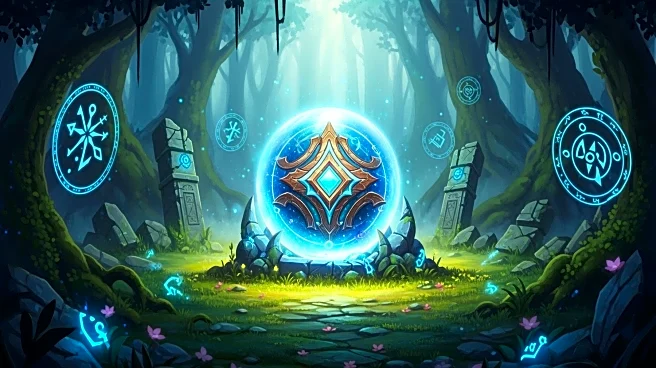What's Happening?
Pokemon Legends: Z-A has demonstrated strong sales performance globally, selling 5.8 million copies in its first week. The game, which is part of the popular Pokemon franchise, has seen significant sales figures
across various regions, including Spain, where it sold 89,000 physical units between October 13 and October 19. This includes 53,000 copies on the Nintendo Switch and 36,000 on the Switch 2. Despite its success, Pokemon Legends: Z-A ranks lower in sales compared to other entries in the series, such as Pokemon Scarlet and Violet, which sold 198,000 units in Spain during its launch. The game also trails behind Pokemon Legends: Arceus, which sold 140,000 units in the same region.
Why It's Important?
The impressive sales figures of Pokemon Legends: Z-A highlight the enduring popularity and commercial success of the Pokemon franchise. This success is crucial for Nintendo, as it reinforces the Nintendo Switch as a leading platform for Pokemon games, contributing to its status as the most successful platform for mainline Pokemon titles. The game's performance also reflects the strong market demand for new Pokemon content, which can drive further development and investment in the franchise. The sales data underscores the competitive landscape within the gaming industry, where franchises like Pokemon continue to dominate and influence market trends.
What's Next?
As Pokemon Legends: Z-A continues to perform well, Nintendo may focus on expanding its reach and maintaining momentum through additional content updates or expansions. The game's success could lead to increased marketing efforts and collaborations to further boost sales. Additionally, the performance of Pokemon Legends: Z-A may influence future game development strategies, encouraging Nintendo to explore new gameplay mechanics or storylines to captivate audiences. The ongoing sales analysis will likely inform Nintendo's decisions regarding future releases and platform strategies.
Beyond the Headlines
The success of Pokemon Legends: Z-A may have broader implications for the gaming industry, particularly in terms of franchise longevity and brand loyalty. The game's sales figures demonstrate the power of established franchises in attracting both new and returning players. This trend could encourage other game developers to invest in long-term franchise development, focusing on building strong brand identities and engaging narratives. Furthermore, the game's performance may impact cultural perceptions of gaming, highlighting the role of video games as a significant form of entertainment and storytelling.









